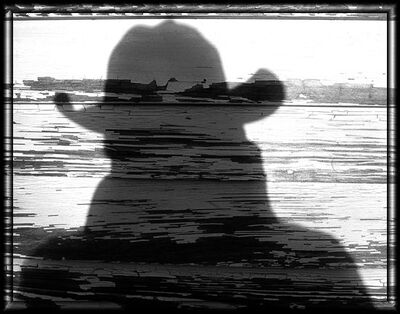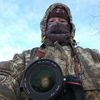Shoot the eclipse using a cpl?
Aug 7, 2017 18:29:24 #
Barbcity wrote:
So I told my husband(who wants to shoot the eclipse),that from looking at the solar filters online, they seem to be all 18 stop filters. We have a couple of 10 stop filters for long exposure as well as a 9 stop filter. Couldn't he just use either (2)10 stop filters stacked together or a 9 and 10 stop stacked together? Perhaps not as optically clear but surely not unsafe?
I personally would not risk it. But go ahead.
Aug 7, 2017 18:37:42 #
Architect1776 wrote:
I personally would not risk it. But go ahead.
After advise like that, I suppose you will be right there to provide medical and life assistance to this person after they go blind.
don't listen to BS like this. A polarizer WILL only get you life time eye damage and possibly blindness. Get the proper tools for your eyes and camera or stay away.
Aug 7, 2017 19:02:13 #
whitewolfowner wrote:
After advise like that, I suppose you will be right there to provide medical and life assistance to this person after they go blind.
don't listen to BS like this. A polarizer WILL only get you life time eye damage and possibly blindness. Get the proper tools for your eyes and camera or stay away.
don't listen to BS like this. A polarizer WILL only get you life time eye damage and possibly blindness. Get the proper tools for your eyes and camera or stay away.
This has been beat to death. There is Google.
NASA does not say use a polarizer therefore it is unacceptable.
Aug 7, 2017 19:04:49 #
burkphoto wrote:
Yes you will go blind. No, you will not get anything worthwhile--- because you will be blind!
You need a special welder's glass filter. B&H sells them.
You need a special welder's glass filter. B&H sells them.
Won't he only go blind in one eye?

---
Aug 7, 2017 19:05:50 #
Aug 7, 2017 19:14:26 #
ronf78155
Loc: Seguin Texas
Cohibas, Monte Cristo, Partagas, and Macanudo are all good....
8 -10 max.....that'll last me 5 years in my humidor
8 -10 max.....that'll last me 5 years in my humidor
Aug 7, 2017 19:50:49 #
Go to telescope.com for some really safe solar filters at Orion telescopes. AlsoAstronomy, and Sky & Telescope (both are magazines)
Also, here is a NASA website explaining the whole thing:
http://eclipse2017/nasa.gov
You NEED to protect yourself, and anybody you take along!
ONLY a #14 arc welder's faceplate is dark enough. The usual grade is a #10. Not nearly dark enough. Lowe's & Home Depot in my area (Atlanta) are selling the eclipse glasses.
If you are in totality, be sure to look around. It gets really dark, the birds go to sleep, etc. It is a really unusual, awesome experience.
I have been an astronomy enthusiast for 50+ years.
Also, here is a NASA website explaining the whole thing:
http://eclipse2017/nasa.gov
You NEED to protect yourself, and anybody you take along!
ONLY a #14 arc welder's faceplate is dark enough. The usual grade is a #10. Not nearly dark enough. Lowe's & Home Depot in my area (Atlanta) are selling the eclipse glasses.
If you are in totality, be sure to look around. It gets really dark, the birds go to sleep, etc. It is a really unusual, awesome experience.
I have been an astronomy enthusiast for 50+ years.
Aug 7, 2017 22:37:27 #
wdross
Loc: Castle Rock, Colorado
Bill_de wrote:
Won't he only go blind in one eye? 
---

---
Only if you are not using binoculars. Already there have been inquires on this site by some that were going to use inadequate filteration on binoculars. That spelled blind in both eyes for life. Hopefully they heeded our warnings and got solar filters for their binoculars or bought actual solar binoculars specificly designed for solar observation. Make sure whatever you get is from a reputable company. NASA's site (NASA.org ) and Fred Espenak's site (MrEclipse.com) will have all the most reputable companies listed.
Aug 8, 2017 04:11:35 #
Architect1776 wrote:
This has been beat to death. There is Google.
NASA does not say use a polarizer therefore it is unacceptable.
NASA does not say use a polarizer therefore it is unacceptable.
You are absolutely unbelievable.
Aug 8, 2017 10:21:04 #
whitewolfowner wrote:
You are absolutely unbelievable.
Sorry but I agree with him. This had been beat to death and the answers are all out on the Web from reliable sources. I'll say it again. If you need to ask these questions in a forum 2 weeks before the event you are not prepared and most likely will not be for this one.
Don't mind helping people out but there is a limit.
Aug 8, 2017 11:28:53 #
duane klipping wrote:
Sorry but I agree with him. This had been beat to death and the answers are all out on the Web from reliable sources. I'll say it again. If you need to ask these questions in a forum 2 weeks before the event you are not prepared and most likely will not be for this one.
Don't mind helping people out but there is a limit.
Don't mind helping people out but there is a limit.





Aug 8, 2017 15:45:25 #
duane klipping wrote:
Sorry but I agree with him. This had been beat to death and the answers are all out on the Web from reliable sources. I'll say it again. If you need to ask these questions in a forum 2 weeks before the event you are not prepared and most likely will not be for this one.
Don't mind helping people out but there is a limit.
Don't mind helping people out but there is a limit.
Then the proper thing to do would be to ignore the question and move on, not beat someone up for asking a question. The subject may be old to you, and you may know how to navigate your way around the site effortlessly; not everyone is the same.
Aug 8, 2017 17:11:10 #
Barbcity wrote:
So I told my husband(who wants to shoot the eclipse),that from looking at the solar filters online, they seem to be all 18 stop filters. We have a couple of 10 stop filters for long exposure as well as a 9 stop filter. Couldn't he just use either (2)10 stop filters stacked together or a 9 and 10 stop stacked together? Perhaps not as optically clear but surely not unsafe?
Safe for your camera, yes; safe for your eyes, maybe not. Whether you cite NASA, the American Astronomical Society or whoever -- they all rely on the international safety standard ISO12312-2 (2015). That standard specifies a range of 14.9 to 20.6 stops for safe viewing of the sun. However, the ISO standard emphasizes the need to protect the eyes from nonvisible radiation (UV and IR) as well as visible light. If you are using Neutral Density filters, be aware that they are designed to filter light in the visible range and are much less effective on UV and IR (eg, about 2 -4 stops). In short, your camera will be OK, but you will be OK only if you use Live View or digital viewfinder -- if you use an analog viewfinder typical in most DSLRs, you could do serious damage to your eyes. If you use white light filters, as those designed for viewing the sun, no problem.
Also, contrary to what many have read here and elsewhere, welder's glasses are not a good choice for the same reason. They are designed to filter radiation from an arc welding torch which generates a very different light spectrum than the sun -- much lower in UV and IR radiation. Welders glasses therefore are explicitly classified under ISO as "inappropriate for solar viewers".
Aug 8, 2017 18:03:17 #
Aug 8, 2017 23:59:29 #
wdross
Loc: Castle Rock, Colorado
skh1454 wrote:
Safe for your camera, yes; safe for your eyes, may... (show quote)
Actually the welders glass will cut the UV and IR like NASA indicates. The main use of welders glass is to cut the high amount UV generated by welding. This is easily explained by black body radiation and Kelvin temperature. As a black body starts radiating temperature, most of the radiation is in IR and very little UV. As a black body increases in Kelvin temperature the UV rises faster than IR in radiated energy. At very high Kelvin temperatures, as with a welding arc, the UV easily exceeds IR in radiation. I can promise you it works because both NASA says so and I am not blind, and still an inspector, after using #14 welders glass for observing two eclipses. It would have been three but one got rained out just before totality. But up to that point, I did use the welders glass for the observation of the partial. So after 2.5 eclipses I am still not blind. If nothing else, I am living proof that NASA's information is correct and can be trusted.
The main problem with #14 welders glass is some brands are not very optically flat and tends to be thick which can effect the image quality. I paid extra to get welders glass that was more optically flat and it does work like it is supposed to.
If you want to reply, then register here. Registration is free and your account is created instantly, so you can post right away.




